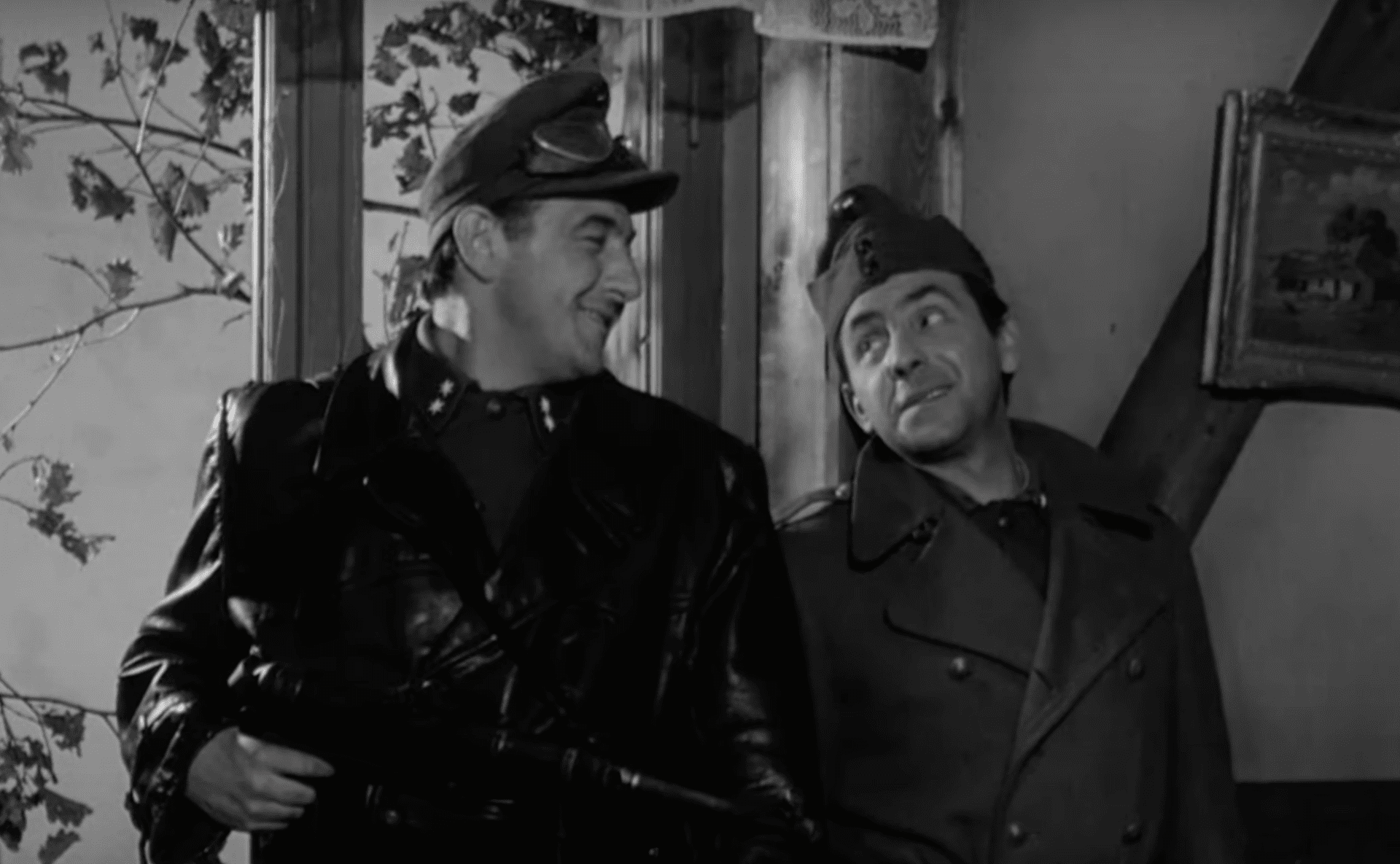The Corporal and the Others is a Hungarian comedy film directed by Márton Keleti. The 1965 motion picture is among the most popular home-produced films in Hungary that made generations of Magyars laugh. In 1968, The Corporal and the Others was chosen as one of the Budapest Twelve, an initiative that selected the twelve best films produced in Hungary between 1948 and 1968. In 2012, the comedy once again made it onto a special list: that of the best Hungarian movies ever made. It came in fifth on the list of 53 Hungarian Films by the Hungarian Academy of Arts. The entertaining and funny movie that always surprises its viewers with its many unexpected twists and turns is a perfect comedy to watch while preparing for Christmas. The film can be viewed with English subtitles through various subscription service providers.
The movie is set in early December in the last days of World War II and
it features a group of soldiers who have defected and are bound together by only one objective—to survive the war.
The main character, Corporal Ferenc Molnár is on the run with his unit’s monthly salary. With a falsified command in his pocket, he tries to flee from the front line on his motorbike. However, the front lines continuously and unexpectedly change, which makes him reconsider his plans and flexibly adapt to the unpredictable and dangerous situations he gets into. After a series of challenges, he finally finds a seemingly empty mansion, guarded only by a butler, Albert. Soon it turns out, however, that there are three other defectors also hiding in the mansion. The four men decide to team up, and under the leadership of Molnár the group agrees that they are willing to cooperate with literary anyone in order to survive. In the 100 minutes of the film, the group encounters Soviets, Nazis and members of the Hungarian army as well, always pretending to be ‘on the right side’ to win time and escape. The film follows the grotesque adventures of the four men, presenting their desperate blunders and the chaotic wartime situations in a comic way, until they are captured by the Red Army and sent on a partisan mission.
The film was an immediate success thanks to its unconventional satirical approach
to the topic that broke with the ‘hero myth’ genre of previous World War II movies. Telling a war story in such a sardonic comedy style was a novelty at a time when both American and Soviet World War II movies focused on the heroism of those fighting against Nazism. It was also unusual to put ordinary soldiers in the spotlight instead of telling a story of well-known historical figures or partisans. The film was a box office hit: soon after its release it was watched by 2.2 million people in Hungary only.








